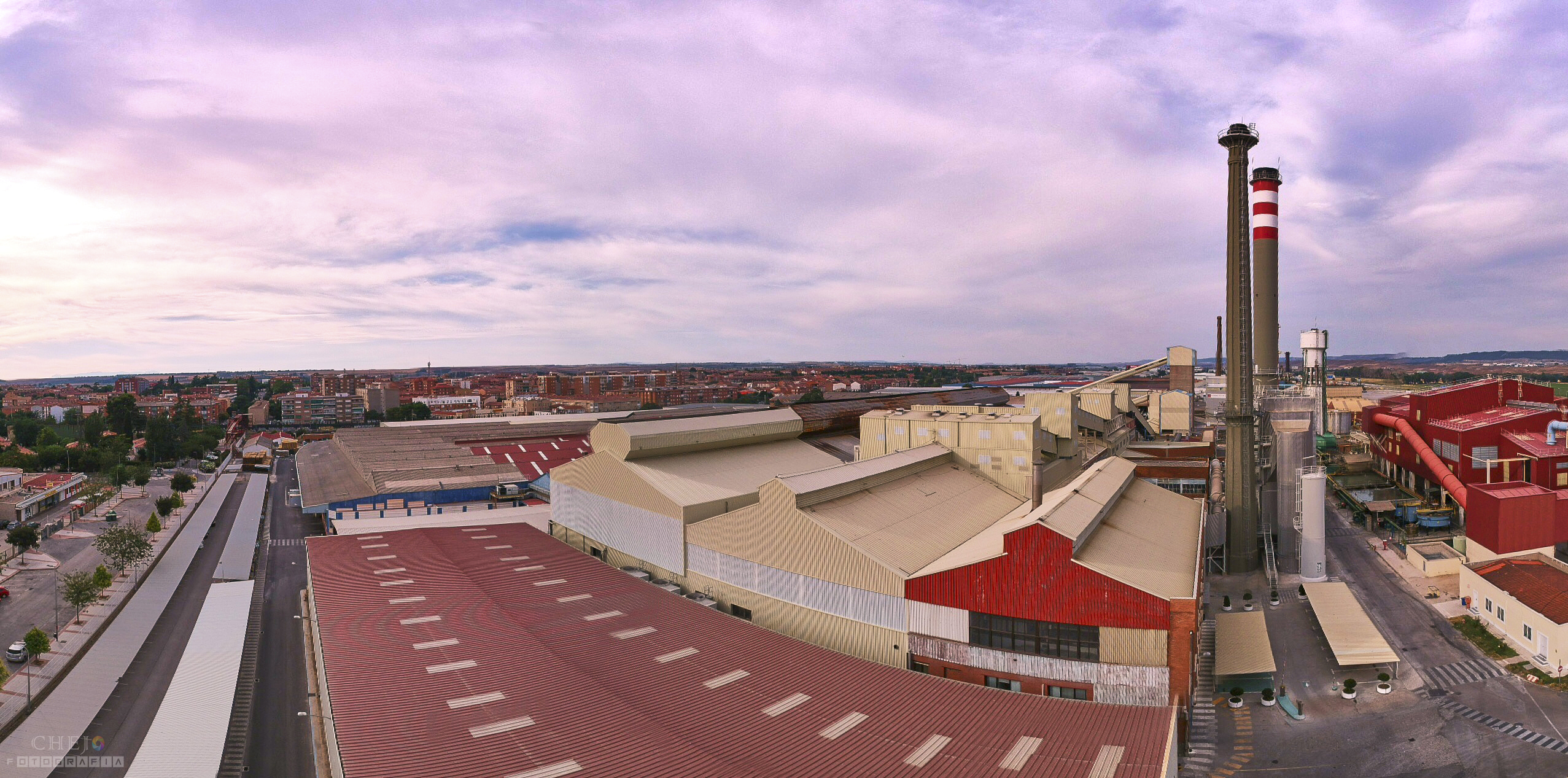Verallia reaffirms its CSR strategy and ambitions during a tour of its Azuqueca site in Spain organized for analysts and investors
Patrice Lucas, Chief Executive Officer of Verallia, took advantage of his visit to the Azuqueca plant in Spain to provide an update on the Group’s CSR roadmap to 2025. In line with its purpose to “reimagine glass for a sustainable future”, Europe’s leading and the world’s third largest producer of glass packaging for food and beverages continues to roll out concrete projects to deliver its CSR roadmap. The Group also took this opportunity to illustrate the robustness and recurrence of its Industrial Performance Action Plan (PAP).

In the words of Patrice Lucas, CEO, Verallia:
“Faced with the urgency of climate change, and through our leadership role, we have the means to act and make glass the most sustainable material on the market. Our CSR roadmap, rooted in our purpose since 2021, is the perfect concrete illustration of this. Based on ambitious and consistent objectives, it guides our strategy and our actions. Our recent investments mark a major step forward and confirm our commitment. We are proud to present the Azuqueca site, a plant at the forefront of ESG innovation.”
Wendy Kool-Foulon, Verallia’s CSR Director and General Counsel, added:
“Our purpose guides all our strategic choices and gives meaning to our actions. Verallia is aligned with the 1.5°C climate trajectory, the most demanding defined by the Paris Agreement. Our commitments are threefold: the circularity of our packaging, decarbonization and the ability to ensure a safe and inclusive working environment for all our employees.”
STRENGTHENING THE CIRCULAR DIMENSION OF GLASS PACKAGING
The circular economy is a strategic area of development for Verallia. Among its action levers, the Group has made the integration of cullet one of its priorities and aims to reach 59% external cullet by 2025. By 2022, Verallia had already reached nearly 56%. To secure the supply of this recycled glass and strengthen control over its value chain, the Group is investing to increase its processing and sorting capacities.
To this end, Verallia has just announced the acquisition of three Santaolalla Group companies in Spain and Portugal : Ecosan Ambiental, Ecolabora and Vidrologic (c.f. press release).
Another lever with a strong environmental impact, reuse can reduce energy consumption and CO2 emissions by a factor of four for glass bottles which can be reused up to 30 or 50 times without deteriorating, before being 100% recycled. Several Group initiatives in Europe are already well advanced in this area, including in France and Germany (c.f. press release).
In Spain, Verallia is involved in the REBO2VINO pilot project in partnership with the Spanish wine federation (FEV), which aims to optimize the number of times a bottle can be reused. The work of this working group will continue until March 2025, with a view to rolling out this future model on a European scale.
SIGNIFICANTLY REDUCE CO2 EMISSIONS IN ALL THE GROUP’S BUSINESS SECTORS BY 2030
Verallia has set itself drastic targets for reducing CO2 emissions, in the order of 46% by 2030 compared with 2019 (in absolute terms on scopes 1 and 2) and is aiming in particular to use 60% renewable or low-carbon electricity by 2025 and 90% by 2040 (already 50% in 2022). To meet these targets, the Group is focusing on innovation.
Zaragoza, Spain, will become the very first Group plant to be equipped with a hybrid technology furnace, scheduled for 2025. In France, this technology – which reduces emissions by 50% – has also just been announced for the Saint-Romain-le-Puy site (Loire) for 2026; and in 2024, the Cognac plant will become the first in the world to deploy a 100% electric glass furnace for the food sector, which will directly cut CO2 emissions by 60%.
Also in Spain, at the Burgos plant, the heat from combustion fumes has already been recovered since 2021 by a boiler producing dry steam – and used by a Group customer, Mahou San Miguel, on its nearby industrial site. Building on this promising initial experience, a similar project was launched in early 2023 at the Lagnieu site in France: the recovery of waste heat should enable the plant to produce 10% of its electricity.
In addition to energy, reducing the use of raw materials is another major challenge, and the focus of research by R&D teams into alternative materials to calcium and sodium. 2023 marks the start of industrial operations at several of the Group’s sites.
Finally, eco-design and bottle lightening are also at the heart of our actions. The Group is aiming to reduce the weight of standard non-returnable containers by an average of 3% by 2025 compared with 2019 and is preparing to launch a new Bordelaise model weighing just 300 grams, 20% lighter than the market standard.
ENSURING A SAFE AND INCLUSIVE WORK ENVIRONMENT FOR ALL VERALLIA EMPLOYEES
Verallia places people at the heart of its strategy. In particular, the Group deploys a safety policy that aims for “zero accidents” at each of its sites.
Since 2022, Verallia has also structured a genuine Diversity and Inclusiveness approach. In Spain, for example, Verallia is a member of the “CEO por la diversidad” alliance, which brings together some sixty CEOs from major companies. In addition, the Group’s ambition is to increase the proportion of women managers from 32.4% to 35% by 2025. To meet this objective, the company has set up a mentoring program for women to help them progress within the Group.
A ROBUST AND RECURRENT INDUSTRIAL PERFORMANCE ACTION PLAN
The Group also reiterated the methodology of the Industrial Performance Action Plan and its rigorous follow-up, leading period after period to a minimum 2% reduction in the Group’s cash production costs. The plant tour enabled the teams to present concrete actions under this plan. The document presented during of this visit is available on verallia.com.